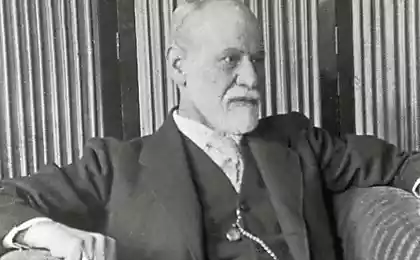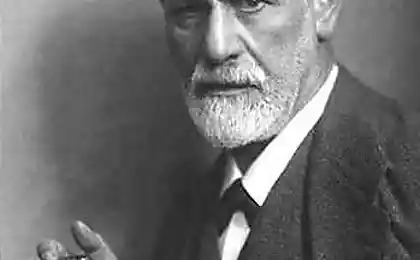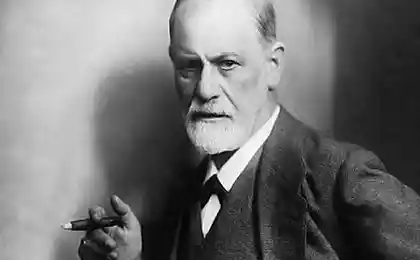195
Advice from Sigmund Freud. How to remove anxiety and know yourself?
Description: In this article, we will look at some of Sigmund Freud’s ideas about the nature of anxiety and mental processes. The author offers practical advice based on psychoanalysis, helping to relieve excessive tension and approach a deeper understanding of one’s personality.

Advice from Sigmund Freud. How to remove anxiety and know yourself?
Introduction
What is the difference between ordinary anxiety and the one that quietly captures all consciousness, prevents you from living and making simple decisions?
Why, with so many opportunities for personal growth, do we sometimes find ourselves trapped in internal conflicts?
Sigmund Freud, the founder of psychoanalysis and one of the most influential psychologists of the twentieth century, noted:
The key to mental health lies in the unconscious. Having understood the underlying motives of their actions and feelings,
We can free ourselves from excessive anxiety and gain a stronger foothold in life.
In this article, we will look at a few tips that, based on the legacy of Freud, can help to better understand your self.
learn manage their own mental state. Of course, there are no quick life hacks.
It is not a substitute for a full-fledged work with a psychotherapist when it comes to serious problems, but the basic ideas of psychoanalysis.
They can give an important impetus to self-knowledge and reduce anxiety.
Main part
1. Recognize the power of the unconscious
One of Freud's key ideas: subconscious desires And childhood experiences continue to affect us.
Even if we're not aware of them. When a person denies or suppresses their emotions, internal tension increases.
Breaking through anxiety, dreams or neurotic symptoms.
If you notice that excessive anxiety appears “for no reason,” try to realize: perhaps deep down.
There is a contradiction between your true desires and your social attitudes. A simple example: you want to change the way you work.
But your parents (or you) say, "It's not serious." There is an internal conflict,
Which manifests itself in anxiety, nightmares, causeless irritability.
The first piece of advice from old Freud is to stop fooling yourself about what you really want.
If there’s a dream that pops up over and over again, give it space—at least as a diary entry.
Listen carefully to your inner voice, because the suppression of desires undermines the psyche from the inside.

2. Interpretation of dreams: hints from the depths
Dreams are not just a “chaotic reboot of the brain,” as is sometimes thought.
Freud called sleep “the royal road to the unconscious.” Many conflicts and experiences,
Those that we ignore during the day come to the surface at night in symbolic form.
If you wake up in the middle of the night in anxiety, try to immediately write down the images that arose in your dream.
Even if they seem ridiculous.
The secret is not to take the dream literally. Does the train mean you’re “getting out of trouble”?
Or are you trying to jump into a new phase of life? Maybe a room with closed doors is a symbol.
The unmanifested part of your personality?
After collecting a few nightly stories, you will notice patterns that indicate subconscious fears or dreams.
Gradual awareness of these signals helps relieve some of the anxiety, because clarity lowers the degree.
Unaccountable fears.
3. Find a balance between the “Super-I” and the “It”
In psychoanalysis, Freud described personality structure through three components: "It." (Id)
a repository of instinctual drives and desires, "I" The rational part, the mediator between instincts and reality.
and "Super-I" (Superego) - a set of moral norms, prohibitions and ideals.
Excessive severity of the “super-self” sometimes gives rise to feelings of guilt and constant anxiety “Is I doing the right thing?”
On the contrary, the "It" that took over leads to impulsivity and the risk of rash action.
To reduce anxiety, try to balance these forces.
If you feel that the "Super-Self" is crushing, allow yourself little joys, relax,
Give way to inner desires that do not harm you or others.
If impulsivity prevails, build a reasonable framework and schedule for yourself.
It helps me to stay in harmony with the outside world.
4. Don’t be afraid to talk about your feelings.
Freud's great merit is that he allowed people to openly discuss inner experiences.
including taboo or painful topics. We're used to suppressing. fear and anxiety,
Consider them a sign of weakness, but it is the unspoken emotions that often become the source of neurosis.
If you feel that anxiety is increasing, try to share your worries with someone.
Someone you trust. Or keep a personal journal in which honestly describe anxiety, fears,
Even if they seem irrational. This act of 'verbalization' helps shift emotions
From the vague zone of the unconscious to the level of meaningful understanding.
Many of the patients who came to Freud felt relieved by the fact that they were not.
They say what they have been hiding for years.

5. Go through the "resistance zones"
There is a concept in psychoanalysis. "resistance" When the mind unwittingly resists disclosure
Unpleasant memories or recognition of hidden desires. This resistance can be expressed in forgetfulness.
"Sudden" fatigue, irritation to the topic of conversation. But where we resist, we often lie.
The most important keys to yourself.
If you are “angry” about a particular topic, or feel that your mind is “evading” something,
Try to carefully examine what is hidden there. You may not want to admit to being jealous of your partner.
Or resentment against a loved one. Through this awareness, you can release energy.
previously gone on the suppression of feelings, and therefore to reduce anxiety, which often occurs
The conflict between “what is” and “what one wants to consider” reality.
Conclusion
The legacy of Sigmund Freud continues to influence modern psychology.
Many of his ideas have been criticized and rethought. However, the general message is “better to know yourself.”
To find inner harmony remains relevant. Anxiety,
Unreasonable anxiety, self-sabotage – all these can indicate internal conflicts, the roots of which lie deeper.
More than everyday excuses for “work stress” or “relationship problems.”
If you want to improve your mental health and feel better confidently.
Pay attention to the clues of the psychoanalytic heritage: explore dreams, be honest with your desires.
Don’t be afraid to talk about feelings and work on resistance zones. Awareness of hidden motives
Frees up energy for creativity, development and love for yourself and the world.
Of course, if the level of anxiety is too high, do not delay with the appeal to specialists - psychotherapists, psychologists.
But even a small independent work on the understanding of internal processes can significantly reduce stress.
It makes you feel like you are the master of your own destiny. Because, as Freud said,
“A man is only as sick as he refuses to understand himself.” And in self-understanding lies the beginning of healing.
Glossary
Subconscious desires
Aspirations and attractions that are beyond awareness but affect our behavior and emotional state.
Psychoanalysis
The method of deep research of the psyche, based on the identification and comprehension of unconscious processes, developed by Sigmund Freud.
Dreaming.
The mechanism of expressing hidden desires and conflicts in symbolic form during sleep.
Super-I (Superego)
A component of the psyche (according to Freud) responsible for moral norms, ideals and prohibitions absorbed from culture and family.
Resistance
Unconscious repulsion of any attempts to realize repressed feelings and memories; prevents psychological study.
Verbalization
The process of translating experiences into words, understanding emotions through their verbal expression.
What can conflictology teach us?
Dangerous types are Narcissus, abuser. How to recognize what is dangerous, how to protect?























